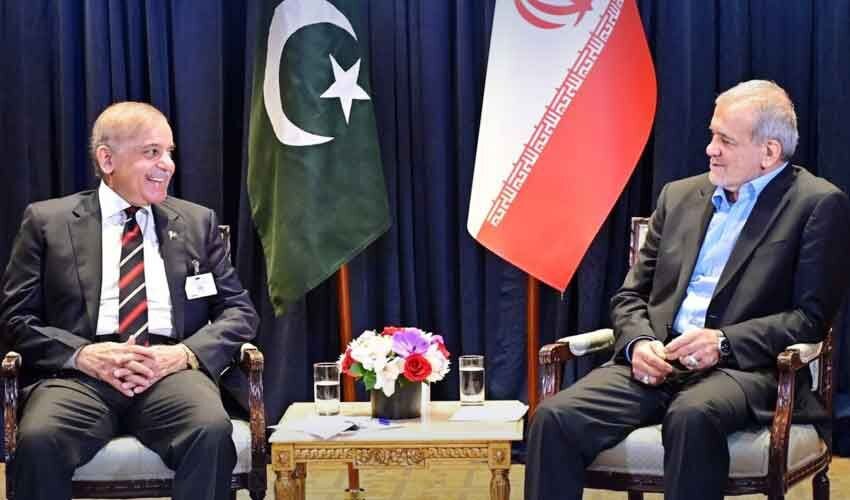TEHRAN – Pakistan Prime Minister Shebaz Sharif is scheduled to visit Tehran in the coming days at the invitation of Iranian President Masuud Pezeshkian, marking another milestone in the efforts of two neighbors to deepen bilateral relations and promote regional stability.
The trip highlights Iran’s “neighborhood diplomacy” strategy. This is the basis of foreign policy aimed at promoting cooperation with neighbouring countries through dialogue and economic engagement.
Diplomatic Continuity
Future visits followed a recent telephone conversation between Sharif and Pezeshkian, highlighting the need for both leaders to expand their economic, trade and security cooperation. The Islamabad Prime Minister’s Office has issued a statement celebrating Iran’s “good intention, brotherly efforts” to ease tensions between Pakistan and India, particularly Tehran’s role in promoting the path to a ceasefire. Sharif also expressed his gratitude to Iran’s diplomatic initiatives, including Foreign Minister Abbas Aragut’s recent visit to Islamabad.
The visit shows a common commitment to reducing hostility in South Asia, in which Iran positioned itself as a neutral actor. Following the recent flare between India and Pakistan, Aragut has been involved with both sides, with President Pezeshkian making separate calls with Indian Prime Minister Narendra Modi and Sharif.
Beyond Bilateralism: Regional Vision
Iran and Pakistan share more than a border. Their bonds are rooted in historical, cultural and linguistic affinity. Furthermore, mutual respect has always been the pillar of the relationship between the two countries, and has maintained an atmosphere of sincerity over the years despite pressure from external forces.
The Pezeschkian regime appears to be exploiting this relationship to not only strengthen bilateral cooperation, but also play a stable role in South Asia. By fostering dialogue between Islamabad and New Delhi, Iran aims to position itself as a trusted mediator. This appears to be increasingly recognized by both Pakistan and India.
The visit is also expected to focus on cross-border trade and state-level collaboration between Iran’s western province and Pakistan’s transnational regions. A recent meeting with governors of Iran’s Kurdistan, Kermansha and Western Azerbaijan (westerly officials in the Kurdistan region of Iraq) highlighted the importance of Pezeshkian turning the border area into an economic hub. “When trade flourishes, security concerns decrease,” he said.
Security and counterterrorism: shared challenges
Another important agenda item is security cooperation, particularly anti-terrorism. Both countries are suffering from terrorist attacks and recognize the need for joint action. In a recent call, Pezeshkian and Sharif agreed to the urgency of dismantling the network of terrorists and blocking financial and logistical support.
“Pakistan is a victim of terrorism and fully understands the need for a solid response,” Sharif condemned the recent attack. The two leaders confirmed their commitment to a stable and safe area with no external interference.
A new chapter in neighbourhood diplomacy
Shehbaz Sharif’s visit highlights important changes in Iran’s foreign policy. It juggles global relationships, focusing on stronger relationships with neighbors. By welcoming Pakistani leaders, Tehran has made its priorities clear. Regional stability depends on open dialogue, economic cooperation and mutual trust.
With South Asia facing growing geopolitical tensions, the potential of Iran’s dialogue facilitators, and Pakistan’s long-lasting openness, will help shape a more unified future. The question now is whether this meeting will lead to real progress. Not only these two countries, we are desperate to perpetuate peace.

